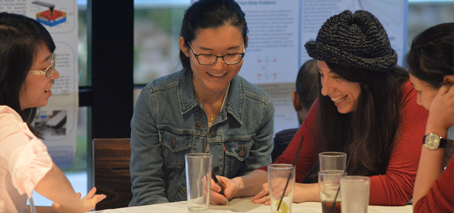Communications workshop for early-career researchers and PhD students
Success in science requires the ability to describe one’s research in a coherent and compelling manner.
FLEET has made an early start in building these skills in ECRs, with a half-day training session targeting science communications skills.
A professional external facilitator from consultancy Mind Your Way coached young researchers on the particular skills needed for writing, presenting and discussing science.
Around 70 FLEET and affiliated ECRs learned to effectively structure their communications, and to customise their language for different audiences, different forums and different lengths.
A ‘Why, What, How, What if’ structure was applied to a whole range of communications, from the classic ‘elevator pitch’ to talking to politicians or potential investors, giving an in-depth presentation to research collaborators or writing a scientific paper:
- Why are we doing this, and why should you care?
- What did we do? (briefly)
- How we did it, in logical steps
- What if, what’s next, questions and bonus material.
Too often, scientists assume their audience already knows why a piece of research is important. By learning to start with ‘Why’, FLEET’s up-and-coming researchers will deliver more compelling and more effective communications.
Communicating well is crucial to FLEET’s success, as well as the future career success of our ECRs; it will maximise their chances of success in published articles, presentations, grants and applications.
By having ECRs explain their research to each other, across nodes and research themes, FLEET also used the exercise to improve Centre cohesion, with ECRs making connections and discovering how other teams’ research projects were related to their own.



